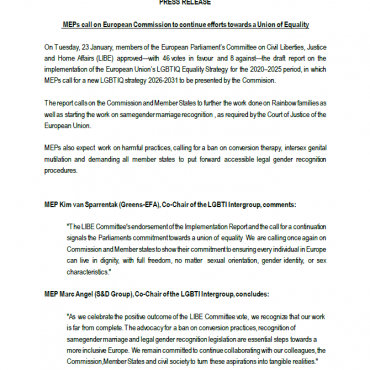Hungary and Poland block equal property rights all EU couples living abroad
Last Thursday, Poland and Hungary blocked a proposal for regulations which would simplify legal procedures for EU couples living or working in another Member State in the event of divorce or death.
 Couples who use their right to freedom of movement in the EU are often faced with legal uncertainties as to the applicable law when dividing property. The regulations were supposed to tackle this uncertainty, while leaving family law, which is a Member State competence, untouched.
Couples who use their right to freedom of movement in the EU are often faced with legal uncertainties as to the applicable law when dividing property. The regulations were supposed to tackle this uncertainty, while leaving family law, which is a Member State competence, untouched.
However, during the debate in the Justice and Home Affairs Council, the Polish Justice Minister argued that the proposals would interfere in national family law, and should be rejected on the basis of subsidiarity.
Hungary’s Justice Minister added that the proposals violate Member States’ national identity, particularly “traditions and values related to the family as a basic element of society.”
The European Parliament agreed in 2013 already that all couples living or working in another Member State, whether married or in a registered partnership, deserve equal cross-border property rights.
Daniele Viotti MEP, Co-President of the LGBTI Intergroup, reacted: “All couples, whether married or in a partnership, opposite-sex or same-sex, should be sure that their property rights are respected when they go abroad. This is a vital ingredient of freedom of movement.”
“It is absurd that EU citizens will continue to face legal uncertainties, simply because these two countries were not able to agree to the proposal.”
Sophie in ‘t Veld MEP, Vice-President of the LGBTI Intergroup, continued: “Freedom of movement of people is a cornerstone and key value of the EU. By protecting the so called ‘traditional family model’, the Hungarian and Polish governments harm the rights of their very own citizens living abroad.”
“Freedom of movement should be equally accessible to all EU couples, despite nationality, settlement or sexual orientation. I look forward to the ambitious steps by the Dutch Presidency on this file, pushing for the most inclusive cooperation possible.”
Read more






